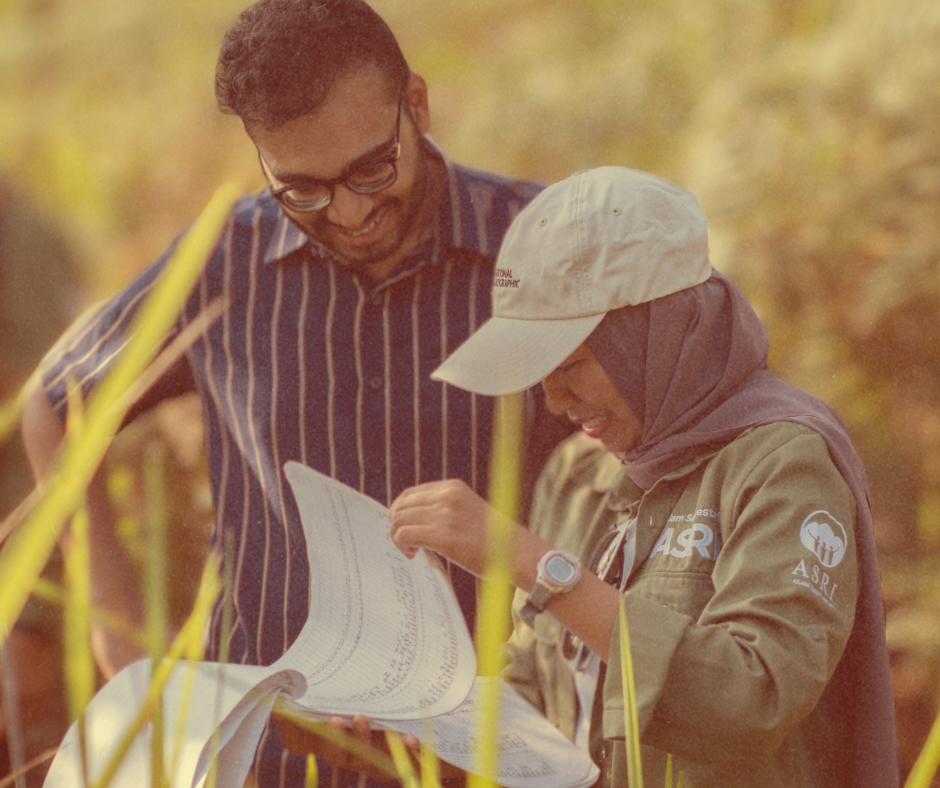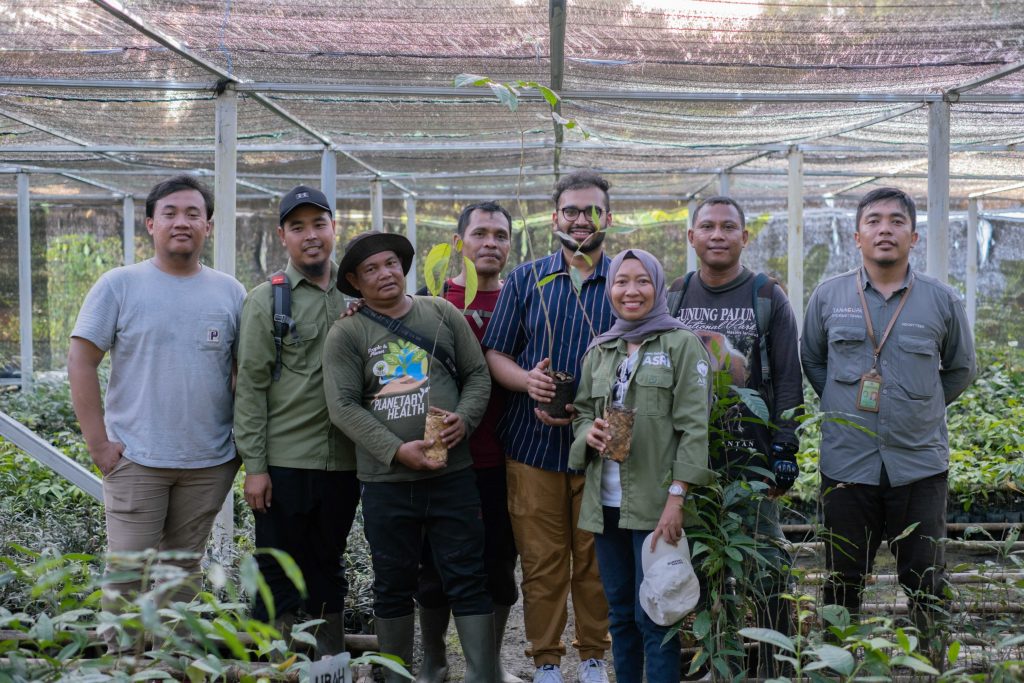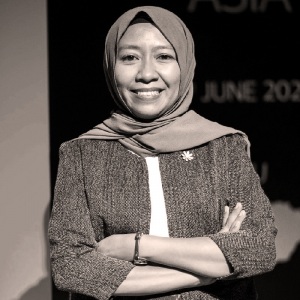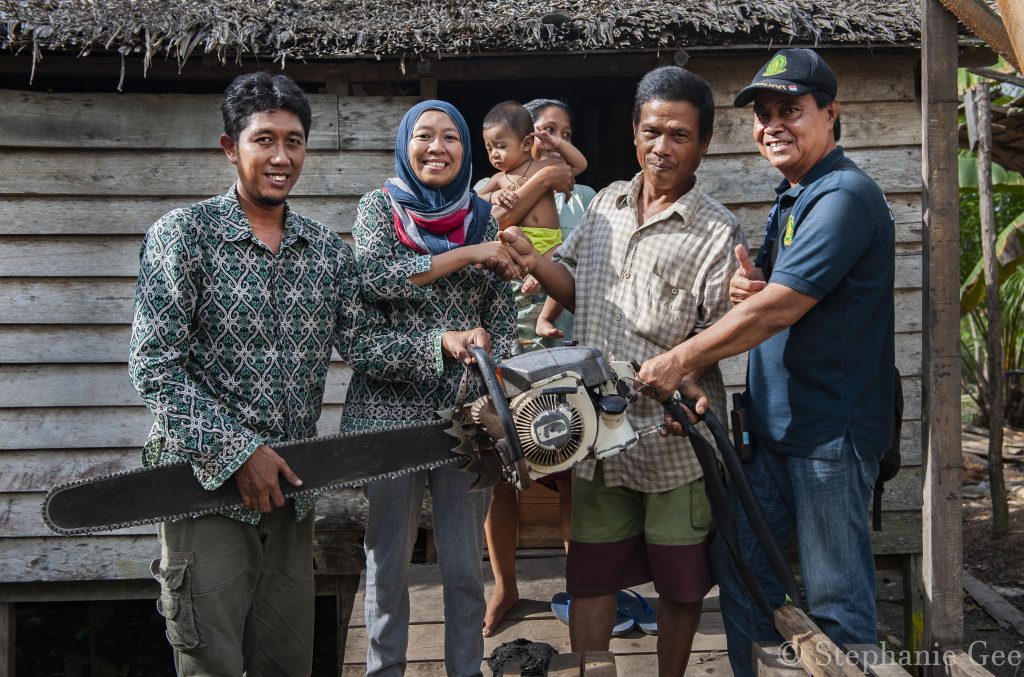
Woman Conservationist Spotlight: Nur Febriani of Yayasan Alam Sehat Lestari
Febri's journey from public health to conservation leadership in Borneo showcases the power of empathy, radical listening, and community-driven solutions in protecting both people and nature.

In the dense and verdant landscapes of West Kalimantan, Borneo, the fight to preserve the island’s ecological heartbeat is championed by dedicated conservationists. Among them is Nur Febriani, a woman whose journey from public health to environmental advocacy is as inspiring as it is transformative.
Febri, as she is fondly called, is the Director of Resource Mobilization at Yayasan Alam Sehat Lestari (ASRI), an organization pioneering an integrated approach to healthcare and conservation. Prior to this role, she served as ASRI’s Executive Director for seven years, steering the organization toward impactful solutions that intertwine human well-being with environmental stewardship.
A Calling Rooted in Public Health
Born and raised in West Kalimantan, Febri’s journey into conservation was not a direct one. She holds a background in Public Health and Epidemiology, having graduated from the University of Indonesia. Even before completing her studies, she was already immersed in humanitarian work, joining the response efforts for the 2004 Indian Ocean earthquake and tsunami. This firsthand experience of working at the grassroots level ignited her passion for social impact, shaping her commitment to community-driven change.
For over a decade, Febri dedicated herself to improving public health across Indonesia. She led the Foundation for Mother and Child Health Indonesia in Jakarta for nearly five years and worked with both the Indonesian Red Cross and the International Federation of Red Cross and Red Crescent Societies (IFRC). Her role at IFRC deepened her understanding of disaster risk reduction, where she witnessed firsthand how environmental degradation exacerbates vulnerabilities in communities. It was through this lens that she began seeing the inextricable link between health and conservation.
Finding the Perfect Intersection: Health and Environment
Despite her extensive background in public health, Febri felt a deeper calling—one that led her back to her homeland in Borneo. In 2018, she joined ASRI, an organization that embodies the very synergy she had been seeking: a holistic model where healthcare incentives drive conservation outcomes.

photo c/o ASRI
ASRI’s approach is unique, offering affordable healthcare services to communities in exchange for commitments to protect the rainforest. Under Febri’s leadership, ASRI expanded its impact, demonstrating that conservation is not just about protecting trees but also about ensuring the well-being of the people who depend on them.
For Febri, ASRI represents a rare and powerful opportunity to unite her passions. “I want the image of Borneo to remain as the ‘lungs of the earth,’” she says. Through ASRI, she has helped amplify the skills and capacities of local communities, proving that conservation and human welfare are not opposing forces but rather two sides of the same coin.
A Woman Leading in a Male-Dominated Field

As a woman conservationist, Febri has navigated the challenges of leading in a traditionally male-dominated space. She recalls moments when she led meetings with her team, gaining their trust through careful listening rather than immediate confrontation. “At first, there was hesitation,” she says. “But when I explained that the program would provide them with hundreds of fruit trees—durian, jackfruit, and hardwood species—they started to see the value. We reassured them that while hardwood trees could not be cut, the fruit trees would provide sustainable income for years to come.”
This patient and empathetic approach, rooted in ASRI’s principle of radical listening, allowed her to bridge the gap between conservation efforts and local economic realities. She understood that true change comes not through force, but through understanding and collaboration.
Transforming Lives Through Conservation
Among her favorite projects at ASRI is the Chainsaw Buyback and Reforestation program. Rather than criminalizing loggers, ASRI provides them with alternative livelihoods, recognizing that most of them cut trees out of necessity rather than malice. “We don’t judge loggers as bad people,” Febri explains. “They are fathers and husbands trying to provide for their families. If we offer them a sustainable alternative, many of them willingly transition.”

photo c/o ASRI
The results speak for themselves: Since 2017, more than 300 former loggers have left deforestation behind, setting up new businesses and even encouraging their peers to do the same. The reforestation efforts, too, have been deeply rewarding. Seeing wildlife return to restored habitats, captured through ASRI’s camera traps, fills Febri with awe. “It’s amazing to see that what we are doing is working. The land is healing, and wildlife is coming back to what was once their home.”
A Legacy of Change
Febri’s work at ASRI is a testament to the power of interdisciplinary action. By merging public health with environmental advocacy, she has contributed to a model that not only restores forests but also uplifts lives. Her journey—from responding to disasters to spearheading conservation-led health initiatives—serves as an inspiration for those seeking to create meaningful, intersectional change.
Through her leadership and unwavering dedication, Febri is ensuring that the story of Borneo remains one of resilience, sustainability, and hope. Her work continues to shape a future where both people and nature thrive together, reinforcing the idea that when we heal the planet, we heal ourselves.
She shares another quote from one of the most authentic collections of hadith (sayings and actions of Prophet Muhammad ﷺ) in Islam that resonates with her mission:
“There is none amongst the Muslims who plants a tree or sows seeds, and then a bird, or a person, or an animal eats from it, but it is regarded as a charitable gift (Sadaqah) for him.”
[Sahih al-Bukhari, 2320]
This hadith emphasizes the lasting reward (Sadaqatul Jaariya) of planting trees and highlights the deep connection between faith, sustainability, and environmental stewardship. It aligns beautifully with Febri’s work in conservation, where reforestation benefits both people and wildlife for generations.
“When a tree stands for tens or even hundreds of years, it continues to give even when we are no longer here. This is real work on the ground, and that is what keeps me going.”
Febri’s message is clear: no matter our background, we all have a role in protecting our environment. “We live on the same planet, we are connected, and our health depends on nature’s health. Let’s support each other in our journey to save our nature.”